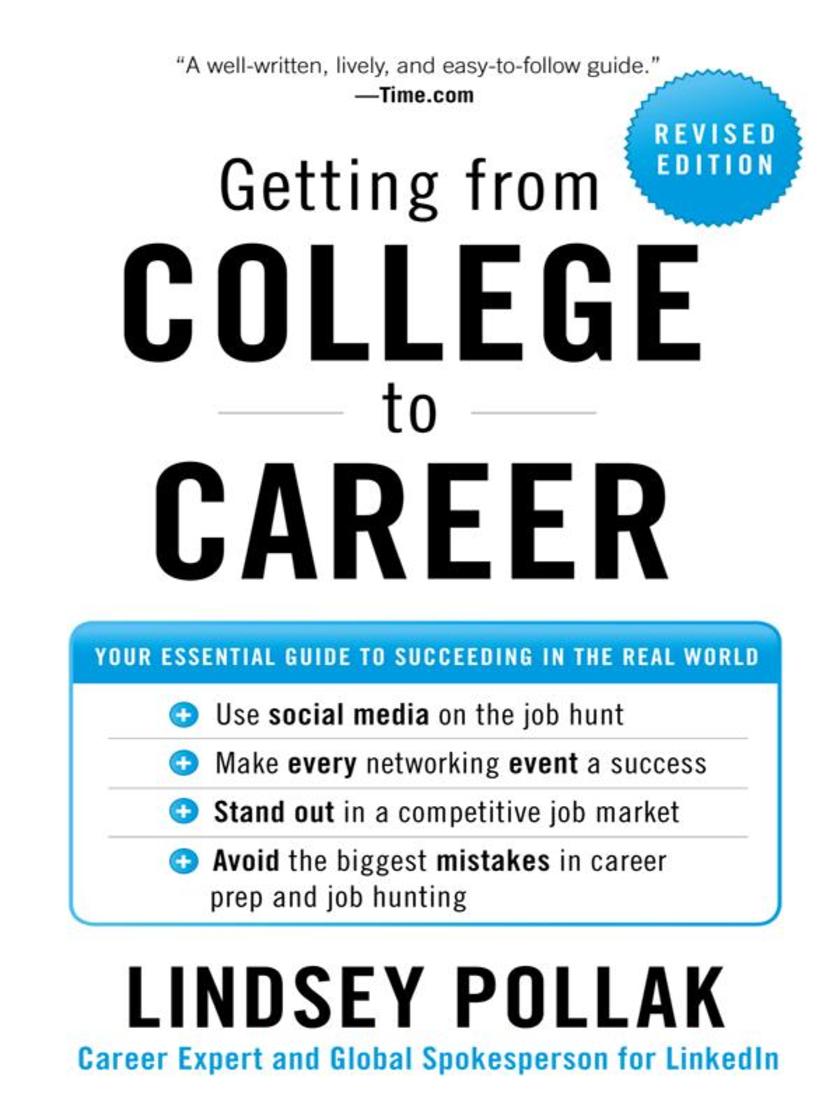
Getting from College to Career
¥99.65
Get Ready for the Real World How do you get a job without experience and get experience without a jobIt’s the question virtually every college student or recent graduate faces. Now newly revised and updated, Lindsey Pollak’s Getting from College to Career is the definitive guide to building the experience, skills, and confidence you need to succeed in the job search, offering action-oriented tips and strategies ranging from the simple to the expert. Learn how to: ?Get the best tools for career prep and job hunting ?E-mail like a professional ?Go global ?Practice the eight essentials of internship achievement ?Perform five minutes of stand-up ?Overprepare for interviews ?Persist without being a pest Getting from College to Career gives you the essential information and guidance you need to get your foot in the door of the real world. Don’t start your first job search without it!

Flawless Execution
¥96.28
Your business can take a lesson from the American military's fighter pilots. At Mach 2, the instrument panel of an F-15 is screaming out information, the horizon is a blur, the wingman is occupied, the jet is hanging on the edge -- and yet fighter pilots routinely handle the stress. It's not much different in today's unforgiving business world. One slipup and your company is bankrupt before your employees know what hit them.What works on the squadron level for F-15 pilots will also work for your marketing team, sales force, or research and development group. By analyzing the work environment and attacking its centers of gravity in parallel, you'll begin to utilize the Plan-Brief-Execute-Debrief-Win cycle that will rapidly impact your business's future success. U.S. fighter squadrons have been using this program for nearly fifty years to reduce their mistake rate, cut casualties and equipment losses, and rack up an envious victory record. Now, with Flawless Execution, your business can too.
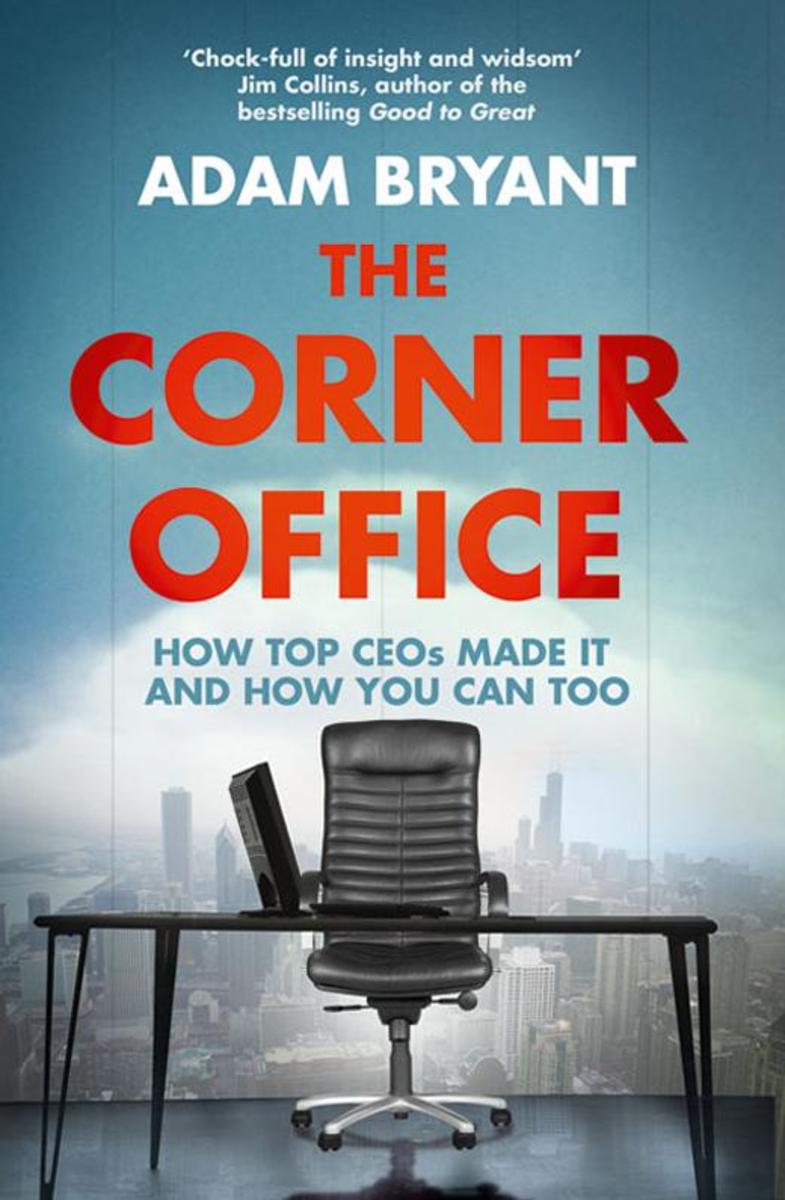
The Corner Office: How Top CEOs Made It and How You Can Too
¥95.75
Aspirational business book based on interviews with over 75 leading American CEOs. What does it take to succeed in business and to inspire others? Adam Bryant of The New York Times sat down with more than seventy-five CEOs and asked them how they do their jobs and the most important lessons they learned as they rose through the ranks. The Corner Office draws together lessons, memorable stories, and eye-opening insights from chief executives like Steven Ballmer (Microsoft), Carol Bartz (Yahoo), Jeffrey Katzenberg (DreamWorks), and Alan Mulally (Ford), as Bryant reveals the keys to success in the business world, including the five qualities CEOs value most in their employees, and shows how executives at the top of their game get the most out of others. For aspiring executives, of any age, The Corner Office offers perspectives that will help anyone who seeks to be a more effective leader and employee, and a path to future success.
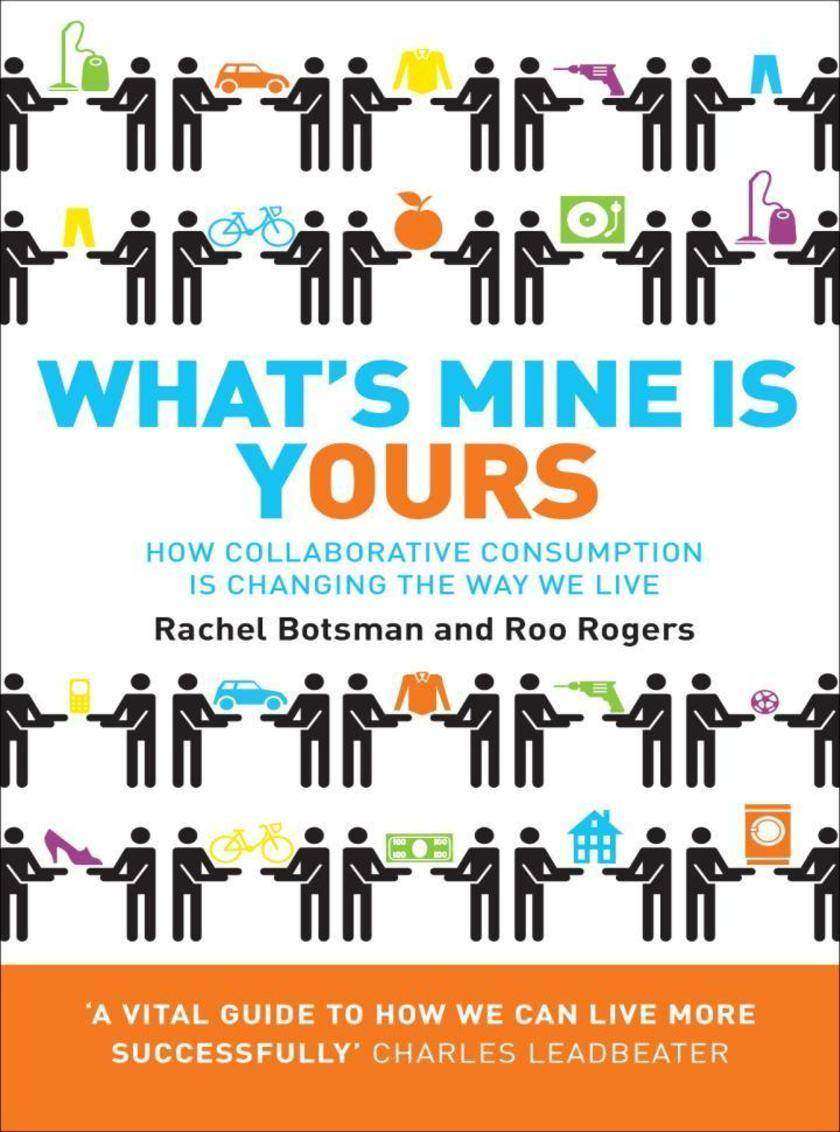
What’s Mine Is Yours: How Collaborative Consumption is Changing the Way We Live
¥95.75
In the 20th century humanity consumed products faster than ever, but this way of living is no longer sustainable. This new and important book shows how technological advances are driving forms of ‘collaborative consumption’ which will change forever the ways in which we interact both with businesses and with each other. The average lawn mower is used for four hours a year. The average power drill is used for only twenty minutes in its entire lifespan. The average car is unused for 22 hours a day, and even when it is being used there are normally three empty seats. Surely there must be a way to get the benefit out of things like mowers, drills and even cars, without having to carry the huge up-front costs of ownership? There is indeed. Collaborative consumption is not just a buzzword, it is a new win-win way of life. This insightful and thought-provoking new book by Rachel Rogers and Roo Botsman is an important and fast-moving survey of the dramatic changes we are seeing in the way we consume products. Many of us are familiar with freecycle, eBay, couchsurfing and Zipcar. But these are just the beginning of a new phenomenon. Rachel Botsman and Roo Rogers have interviewed business leaders and opinion formers around the world to draw together the many strands of Collaborative Consumption into a coherent and challenging argument to show that the way we did business and consumerism in the 20th century is not the way we will do it in the 21st century.
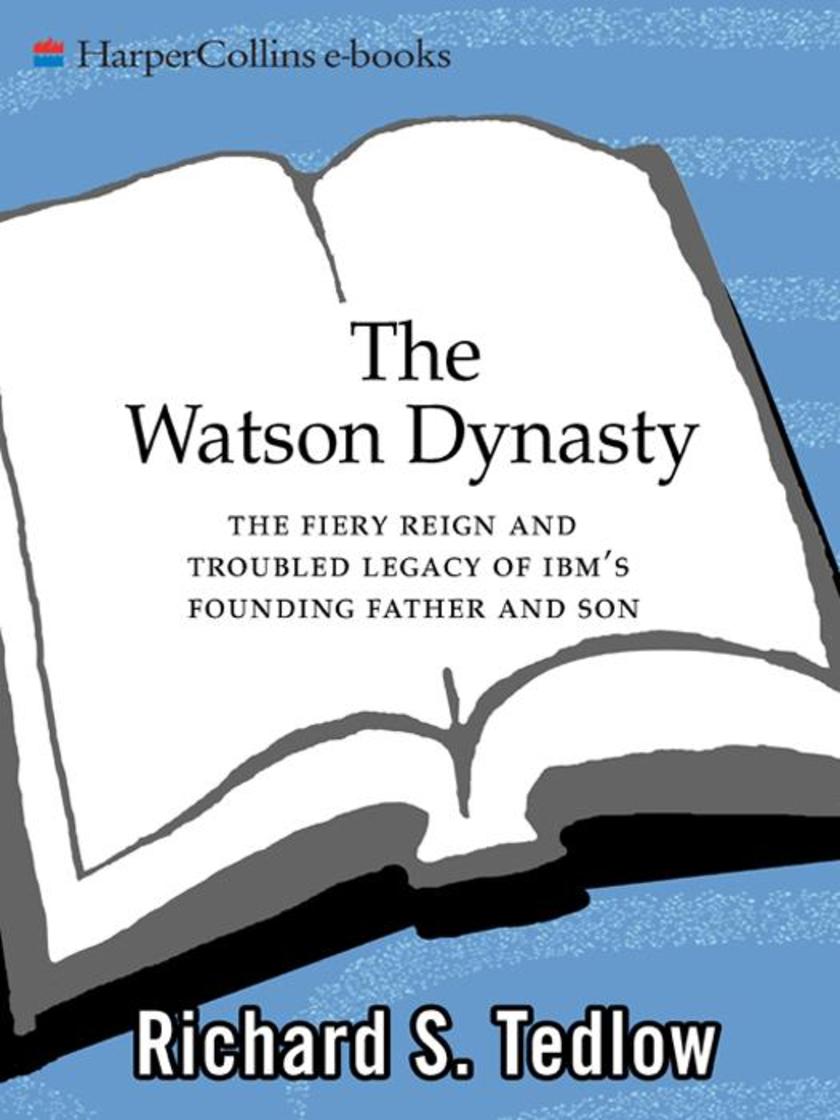
The Watson Dynasty
¥95.39
For an extraordinary fifty-seven-year period, one of the nation's largest and fastest-growing companies was run by two men who were flesh and blood. The chief executives of the International Business Machines Corporation from 1914 until 1971 were Thomas J. Watson and Thomas J. Watson, father and son. That great corporation bears the imprint of both men -- their ambitions and their strengths -- but it also bears the consequences of a family that was in near-constant conflict.Sometimes wrong but never in doubt, both Watsons had clear -- and farsighted -- visions of what their company could become. They also had volcanic tempers. Their fights with each other combined with their commitment to leadership and excellence made IBM one of the most rewarding, yet gut-clutching firms to work for in the history of American business.We are accustomed to describing professional behavior as if men and women leave their emotions and vulnerabilities at home each day. In the case of the Watsons, filial and sibling strife could not be excluded from the office. In closely studying the desires and frustrations of the Watson family, eminent historian Richard S. Tedlow has produced something more than a family portrait or a company history. He has raised the nearly forbidden issue of the role of emotion in corporate life.This book explores the interplay between the person- alities of these two extraordinary men and the firm they created. Both Watsons had deeply held beliefs about what a corporation is and should be. These ideas helped make "Big Blue" the bluest of blue-chip stocks during the Watsons' tenure. These very beliefs, however, also sowed the seeds for IBM's disasters in the late 1980s and early 1990s, when the company had lost sight of the original meaning behind many of the practices each man put into place.Tracing the family's idiosyncratic ability to cope with each other's weaknesses but not their strengths, The Watson Dynasty is a book for every person who ever went to work but didn't want to check his personality at the door.
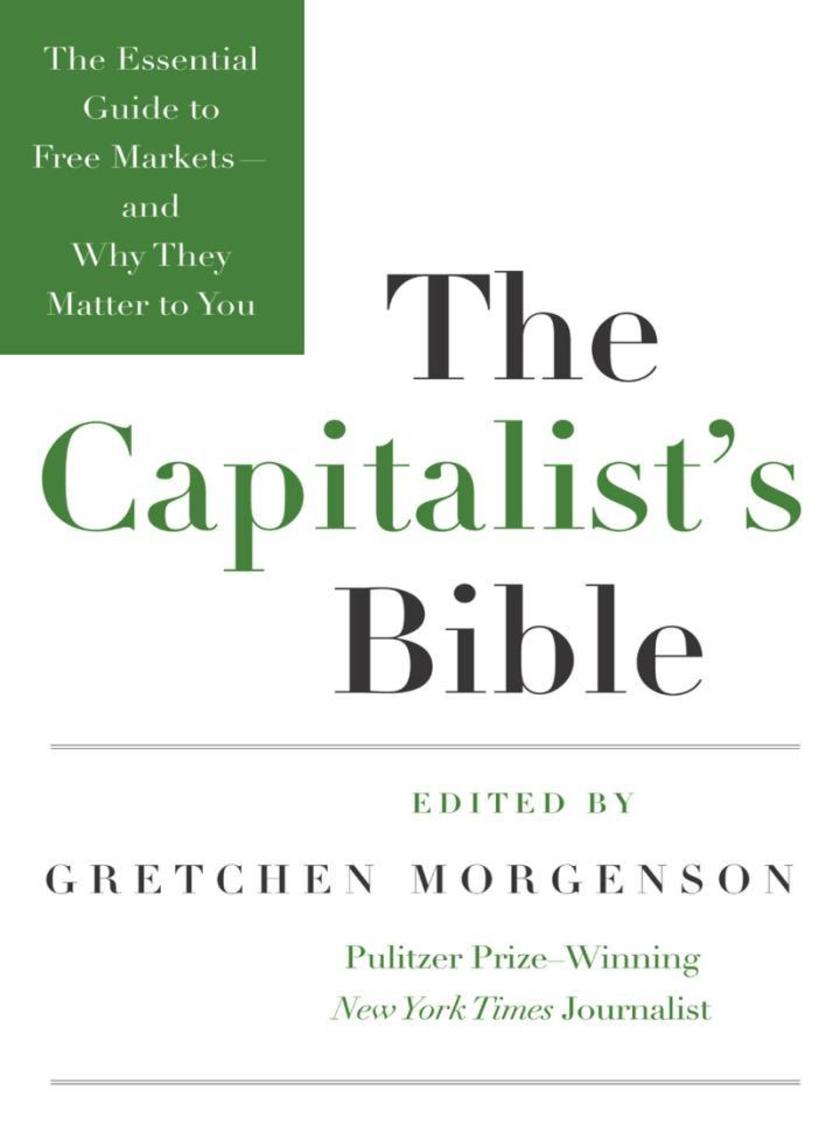
The Capitalist's Bible
¥95.39
Everything you ever wanted and needed to know about capitalism . . . but were afraid to ask. What is capitalism, and will it surviveWhat does globalization really mean and how does it affect your bank accountIf capitalism, left unchecked, has caused disasters like the Great Depression and the financial crisis of 2008–09, why has it been the economic system of choice for centuriesTo many people, the complex, jargon-rich world of capitalism can be intimidating, raising more questions than it answers. However, as the excesses and failures of free-market capitalism continue to hold sway over the daily news and our daily lives, understanding our economic system including where it has succeeded and where it has not is more important than ever. Edited by New York Times business journalist Gretchen Morgenson, The Capitalist's Bible is the essential reference on capitalism and how it works from the people who champion it to the mechanisms and institutions that uphold it to the terms and laws that define it. Whether you seek a more well-rounded understanding of the ideology that underwrites America's and, increasingly, the world's economy, or simply wish to be able to speak more knowledgeably on the subject in conversation, this book is an invaluable tool for understanding capitalism.

The E-Myth Contractor
¥95.39
With The E-Myth Contractor, Michael E. Gerber launches a series of books that apply the E-Myth to specific types of small businesses. The first is aimed at contractors.This book reveals a radical new mind-set that will free contractors from the tyranny of an unprofitable, unproductive routine. With specific tips on topics as crucial as planning, money and personnel management, The E-Myth Contractor teaches readers how to: Implement the ingenious turnkey system of management a means of creating a business prototype that reflects the business owner's unique set of talents and replicating and distributing them among employees and customers. Recognise and manage the four forms of money income, profit, flow and equity. Harness the power of change to expand the company. The book also provides help on a larger level, leading readers towards becoming business visionaries by relinquishing tactical work and embracing strategic work, by letting go to gain control. Once put into action, Gerber's revolutionary ideas promise not only to help contractors build successful businesses, but successful lives as well.
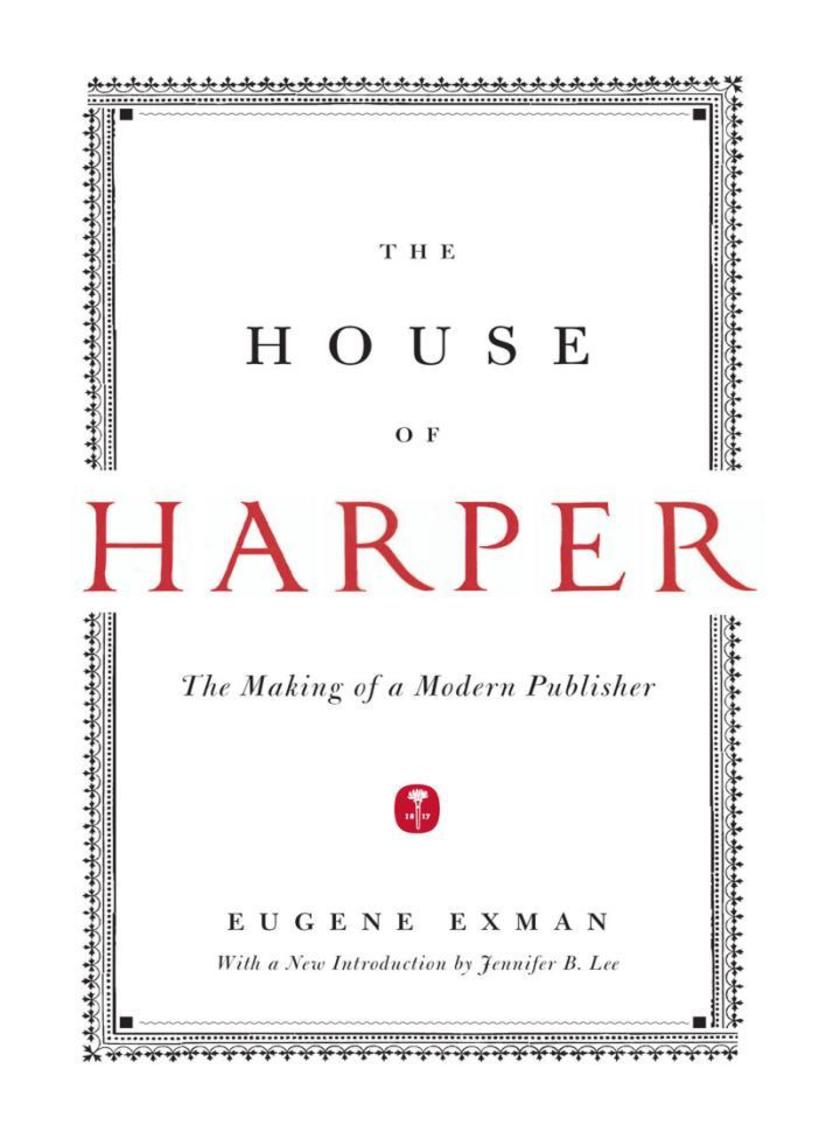
The House of Harper
¥95.39
The epic story of a publishing giantIn 1817 four young brothers opened a printing shop in downtown Manhattan. Two centuries later, their small enterprise has grown into one of the world's largest and most successful publishing houses. The Harper brothers and their sons and successors created a grand cultural institution that has become a cornerstone of America's literary heritage.Eugene Exman's classic history, published in 1967, The House of Harper is the fascinating account of the birth and growth of a magnificent literary empire. Richly detailed, it is filled with portraits of dynamic publishers and editors, with remarkable anecdotes about the legendary artists and authors whose works they championed and brought to the general public Charles Dickens, George Eliot, Herman Melville, Mark Twain, Winslow Homer, Henry James, Edna St. Vincent Millay, Thomas Wolfe, and Aldous Huxley, to name but a few. More than the enthralling saga of a successful business venture, it is a story of the shaping of American literature and culture.
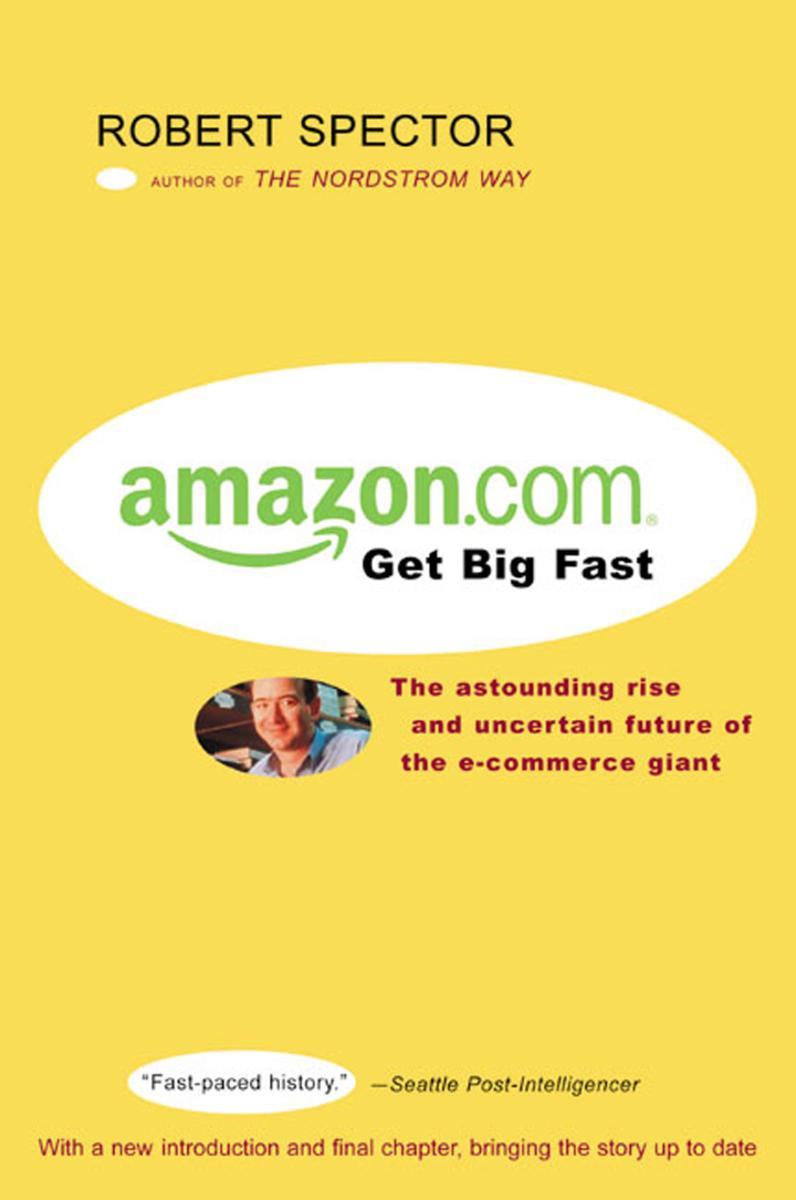
Amazon.com
¥95.39
In Amazon.com Jeff Bezos built something the world had never seen. He created the most recognized brand name on the Internet, became for a time one of the richest men in the world, and was crowned "the king of cyber-commerce." Yet for all the media exposure, the inside story of Amazon.com has never really been told. In this revealing, unauthorized account, Robert Spector, journalist and best-selling author, gives us this up-to-date, fast-paced, behind-the-scenes story of the company's creation and rise, its tumultuous present, and its uncertain future.

Secrets of Six-Figure Women
¥95.39
According to the Department of Labor, the average woman in 1998 was bringing home less than $25,000 a year. For every dollar that a man makes, a woman makes between 50 and 75 cents, and that is hardly news. But what you may not know is that, quietly and steadily, the number of women making six figures or more is rapidly increasing. Currently, over fifteen million women make $100,000 or more, and the number continues to rise at a rate faster then for men. And these women come from every industry - psychologists, dot com founders, consultants, freelance writers, and even part-timers. What makes these particular women able to do so well in the workplaceFueled by curiosity, Barbara Stanny, author of Price Charming Isn't Coming: How Women Get Smart About Money (Viking Penguin), set out to research this phenomenon. What she discovered was that, though the high-earning women she interviewed came from different backgrounds and had had greatly different work experiences, they all had certain characteristics in common. Secrets of Six Figure Woman: Surprising Strategies of the Successful High Earners will be a ground breaking book for high earners who want to ensure their wealth, enhance their success, and learn from others who are in the same boat. It will also offer inspiration, guidance, and motivation to those who aspire to make more.

What Really Works
¥95.39
Based on a groundbreaking study, analysing data on 200 management practices gathered over a 10 year period. Reveals the effectiveness of the 4+2 practices (4 primary and 2 of 4 possible secondary) practices that really matter the ones that, if followed rigorously, ensure sustained business success. With a new introduction by the authors. With hundreds of well known management practices and pre*ions promoted by consultants and available to business, which are really effective and contribute to the growth and continued success of a companyWhich do little or nothingBased on the "Evergreen Project," a massive, 5 year study involving the business school faculties of ten universities, the authors set out to find the management practices that truly promote long term growth and success. Their findings will revolutionize the art and practice of business management.The book shows that there are essentially six management practices that all successful companies must master simultaneously. They range from focusing on a strategy of growth to maintaining the depth and quality of human talent in the organization.
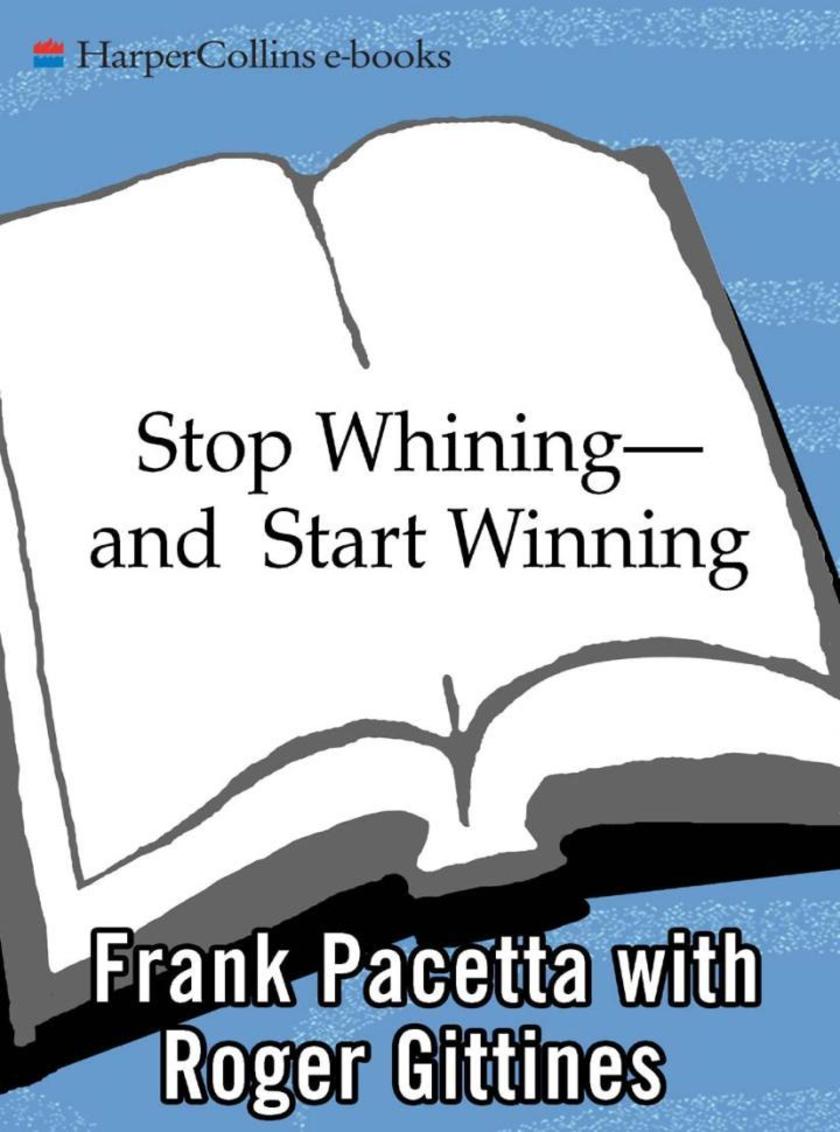
Stop Whining--and Start Winning
¥95.39
Filled with the kind of contagious energy and upbeat attitude that has made Frank Pacetta one of America's most popular motivational speakers, this unique book is for anyone who wants a difference in the workplace. Whatever the occupation, organization, or industry, here are tried and tested solutions, techniques, rules and tactics that get the job done right. Whether you're a manager fed up with your worker's ho-hum attitude or an individual who can't seem to live up to your potential no matter how hard you try, this book will give you ideas that can put into immediate action -- a no-fail formula for ending the whining and instilling in yourself and your employees a winning spirit.
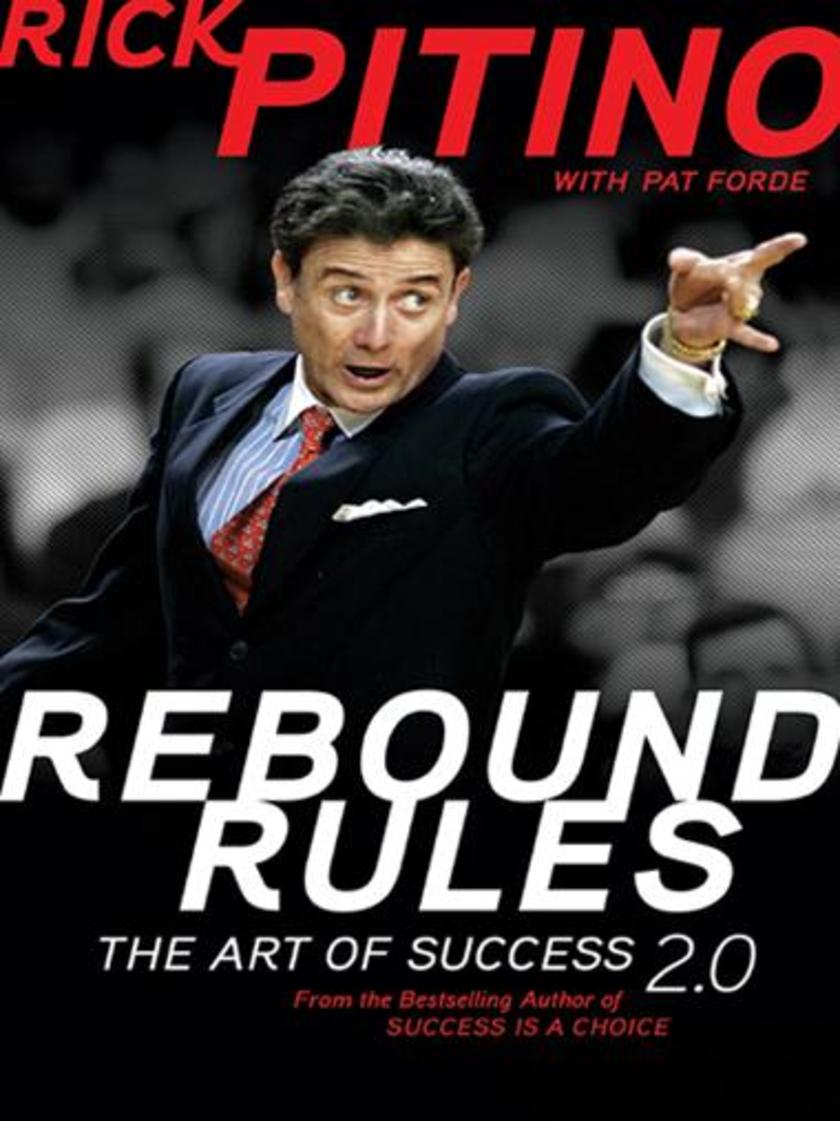
Rebound Rules
¥95.39
Rick Pitino is a basketball icon: the only coach in college history to lead three different schools to the Final Four, the winner of the 1996 NCAA championship, the owner of a sparkling career record, a bestselling author, and a lock for the College Basketball Hall of Fame. Yet Pitino's journey has not been without life-altering adversity: He's experienced profound personal and professional losses. In 2001, after three losing seasons as coach and president of the Boston Celtics, Pitino resigned, walking away from the $23 million left in his contract. And while recovering from the only breakdown in his extraordinary basketball career, Pitino who had previously suffered the devastating loss of his infant son, Daniel endured additional tragedies: His brother-in-law and best friend Billy Minardi, a trader at Cantor Fitzgerald, perished in the World Trade Center attacks of 9/11, less than a year after another brother-in-law had been fatally struck by a taxi. Pitino writes, "From that point on, my life changed forever. Nothing will ever be the same."This realization gave Pitino a new perspective. With it, the innovative leader felt the freedom to act even more dynamically than he ever had in the past. Returning to college basketball, he has rebuilt and revitalized the storied program at Louisville, guiding the Cardinals to a history-making Final Four appearance in 2005 that stamped him the only coach in history to take three schools that far. And in 2008, he rallied an injury-plagued Louisville team from a disappointing start and led it to the Elite Eight, setting the stage for greater success to come.The failures and tragedies he recounts make this book unique. More than just a recitation of what works and why, it's about how to succeed after you've failed; how to pick yourself up after being knocked down; and how to reframe yourself and see the world in a new light. This is a comeback story, a manual for overcoming life's difficulties. Pitino has experienced success as an author with his tremendously popular books Success Is a Choice and Lead to Succeed, but in Rebound Rules: The Art of Success 2.0, he's crafted a book that's more deeply personal, more inspiring, more practical, and more powerful than any he's written before.
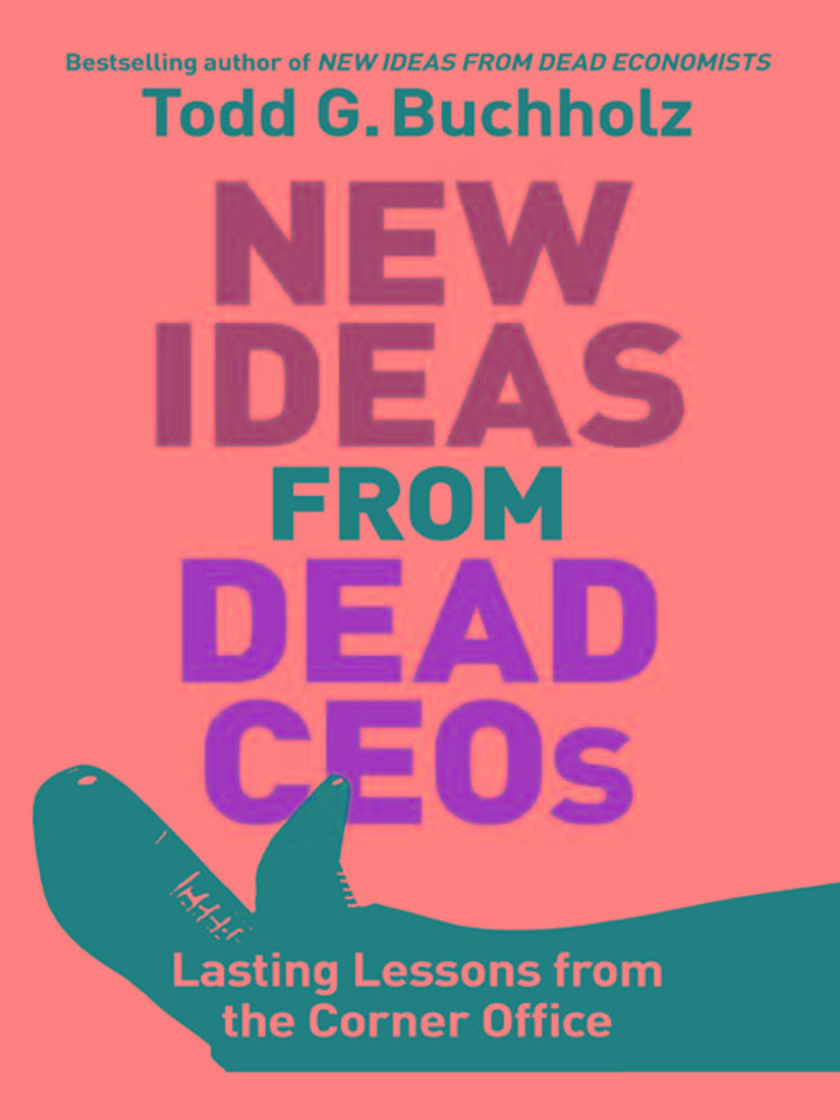
New Ideas from Dead CEOs
¥95.39
New Ideas from Dead CEOs uncovers the secrets of success of great CEOs by giving readers an intimate look at their professional and personal lives. Why did Ray Kroc's plan for McDonald's thrive when many burger joints failedAnd how, decades later, did Krispy Kreme fail to heed Kroc's hard-won lessonsHow did Walt Disney's most dismal day as a young cartoonist radically change his careerWhen Estée Lauder was a child in Queens, New York, the average American spent $8 a year on toiletries. Why did she spot an opportunity in selling high-priced cosmetics, and why did she pound on Saks's doorsHow did Thomas Watson Jr. decide to roll the dice and put all of IBM's chips on computing, when his father thought it could be a losing ideaWe learn about these CEOs' greatest challenges and failures, and how they successfully rode the waves of demographic and technological change.New Ideas from Dead CEOs not only gives us fascinating insights into these CEOs' lives, but also shows how we can apply their ideas to the present-day triumphs and struggles of Sony, Dell, Costco, Carnival Cruises, Time Warner, and numerous other companies trying to figure out how to stay on top or climb back up. The featured CEOs in this book were not candidates for sainthood. Many of them knew "god" only as a prefix to "dammit." But they were devoted to their businesses, not just to their egos and their personal bank accounts and yachts. Extraordinarily fresh and deeply thoughtful, Todd G. Buchholz's New Ideas from Dead CEOs is a truly enjoyable and fun yet serious and realistic look at what we still have to learn and absorb from these decomposing CEOs.
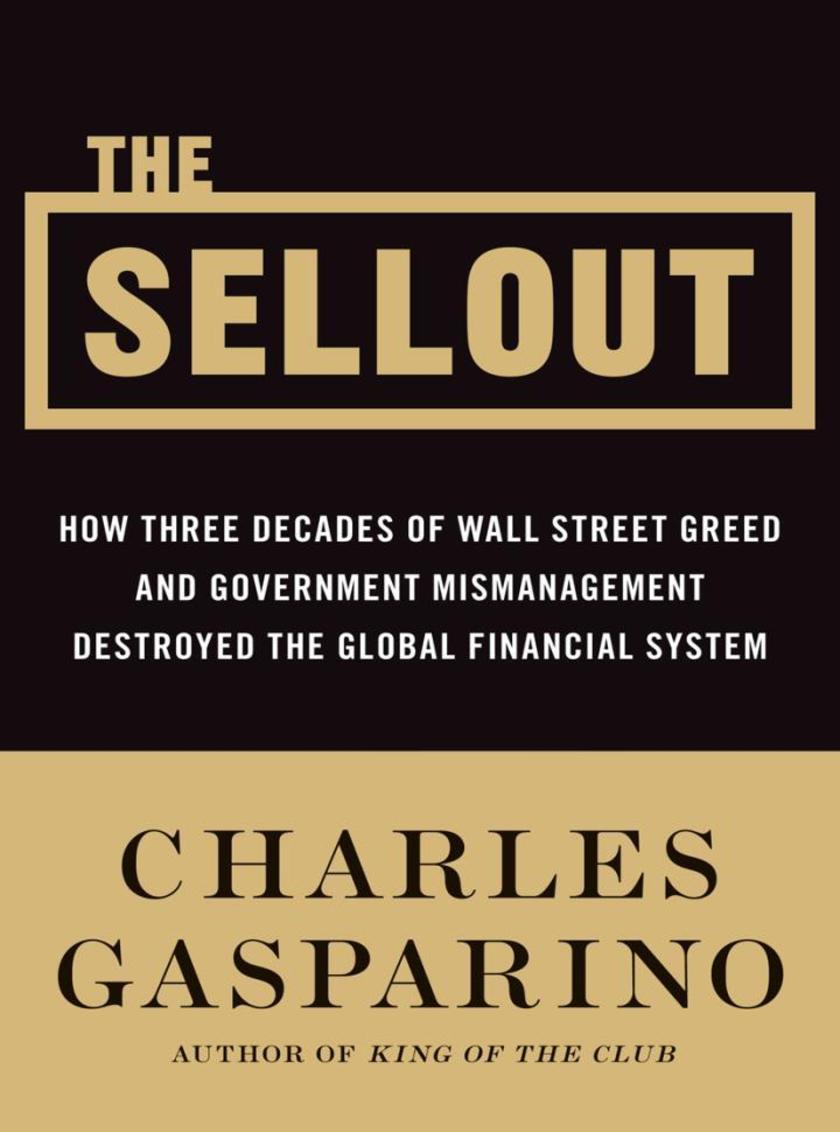
The Sellout
¥95.39
The definitive account of Wall Street's stunning collapse From critically acclaimed investigative journalist and CNBC personality Charles Gasparino comes a sweeping examination of the most recent volatile, anxiety-ridden era in our nation's socioeconomic history. The Sellout traces the implosion of the financial services business back to its roots in the late 1970s when Wall Street embraced a new business model predicated on taking enormous risks. It shows how a backwater business involving the trading of risky bonds packed with mortgages showered countless billions in profits on the financial industry but sowed the seeds of its ultimate demise. Gasparino walks readers through Wall Street's three-decades' love affair with risk, revealing a trail of culpability from the government bureaucrats who crafted housing policies that encouraged homeownership, to the Wall Street firms that underwrote and invested in risky debt, to the mortgage sellers who handed out loans to people without the financial wherewithal to pay them back, to the homeowners who became convinced they could afford mansions on blue-collar wages. The ongoing tumult in financial markets and the global economy began when some of our most esteemed financial institutions, our government, and even average citizens abdicated their collective responsibilities, eventually selling out investors and selling off the American Dream itself. In the spirit of classics such as Barbarians at the Gate and Liar's Poker, this page-turning narrative captures how avarice, arrogance, and sheer stupidity eroded Wall Street's dominance and profoundly weakened the financial security of millions of middle-class Americans. Eye-opening and engrossing, The Sellout provides the most thorough investigation to date of this latest gilded era.
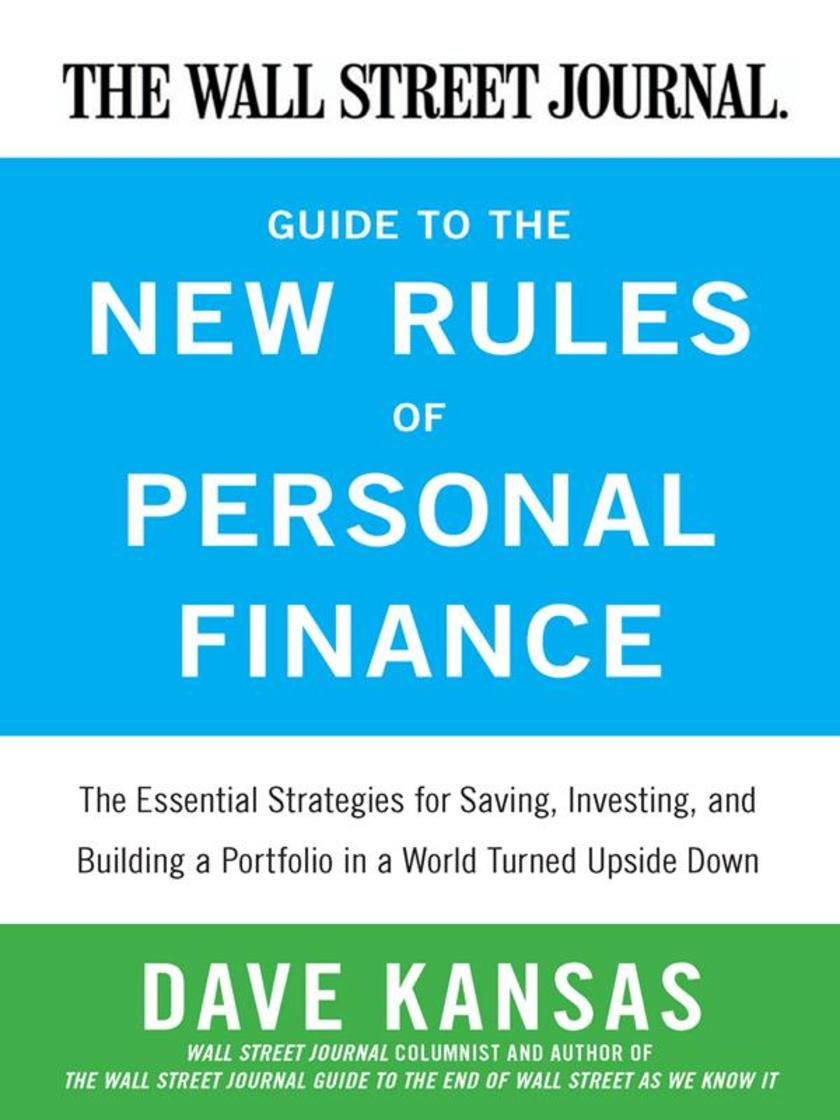
HarperCollins e-books
¥95.39
Everything you thought you knew about saving, managing risk, and securing your financial future has changed. The world is very different in the wake of the biggest financial crisis since the Great Depression. Retirement accounts have been eviscerated, risk appetites diminished, and questions raised about age-old personal finance strategies such as "buy and hold" and the efficacy of relying heavily on stock mutual funds.In The Wall Street Journal Guide to the New Rules of Personal Finance, Dave Kansas offers guidelines for understanding the new regulations for finance firms, the rising importance of international investing, and the very different environment that now exists for home buyers. With valuable chapters on debt reduction, diversification, retirement planning, real estate, commodities, and other vital topics, this essential volume is designed to help the individual determine which tenets of an investing strategy remain sound and which deserve re-examination. It is the ultimate guide to profitably investing your money in a world that has fundamentally changed.
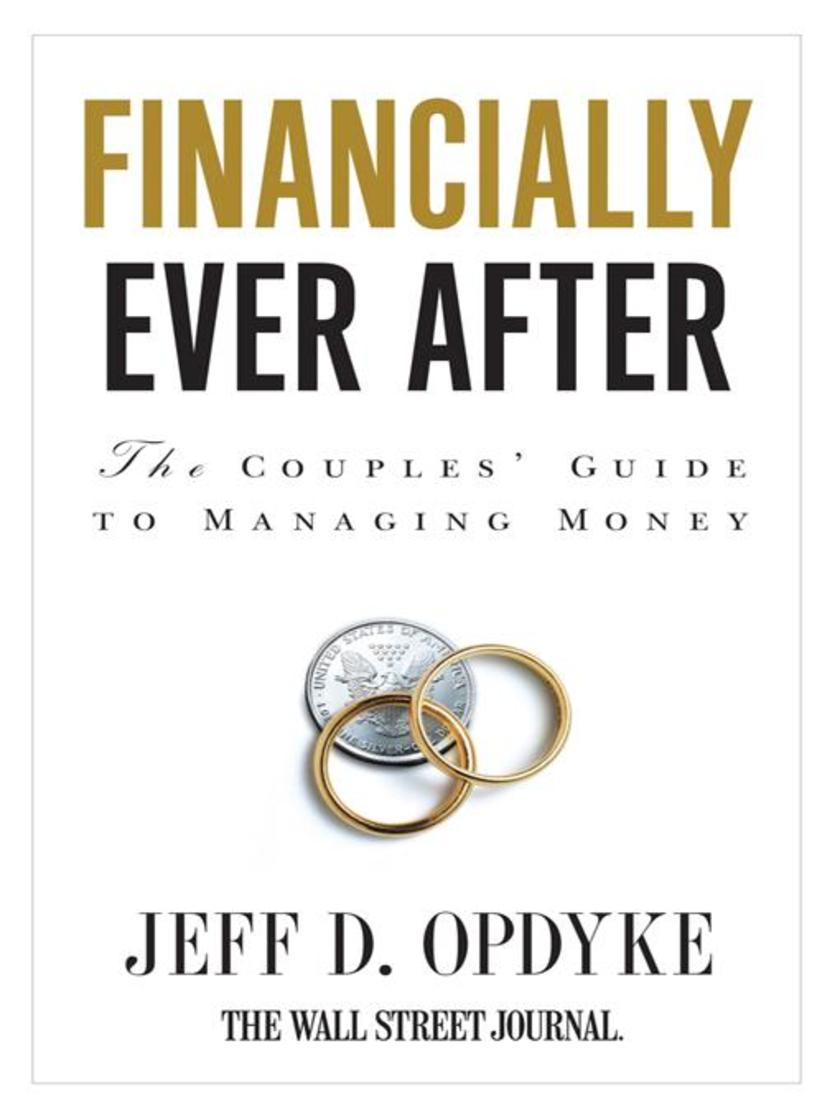
Financially Ever After
¥95.39
Your Guide to Managing the Real Dollars and the Real Emotions of Your Relationship Too often with money, couples face two choices: fight and risk making the situation worse, or keep quiet and risk making the situation worse. Financially Ever After offers a third option: family financial fluency the insight, knowledge, and vocabulary every couple needs to communicate effectively about money. Jeff D. Opdyke, previously The Wall Street Journal's syndicated "Love Money" columnist, covers any and all financial issues that couples face, including budgeting, deciding on whether to have joint or individual accounts, dividing up family financial chores, confronting debt, making major purchases, as well as handling mortgages, employment, children, and even engagement rings. He offers dozens of real-life scenarios between couples, with *s and suggestions for how to broach delicate money-related subjects with your significant other, whether he or she has a shaky credit history or is feeling left out of family financial decision-making.The book also provides helpful tools to organize your financial life, such as a budgeting chart, a "scorecard" to track spending, and an "affordability calculator" to help you figure out how much buying a house will cost you.A must-read for any couple starting out, Financially Ever After lays the groundwork for building a healthy and thriving financial life together.
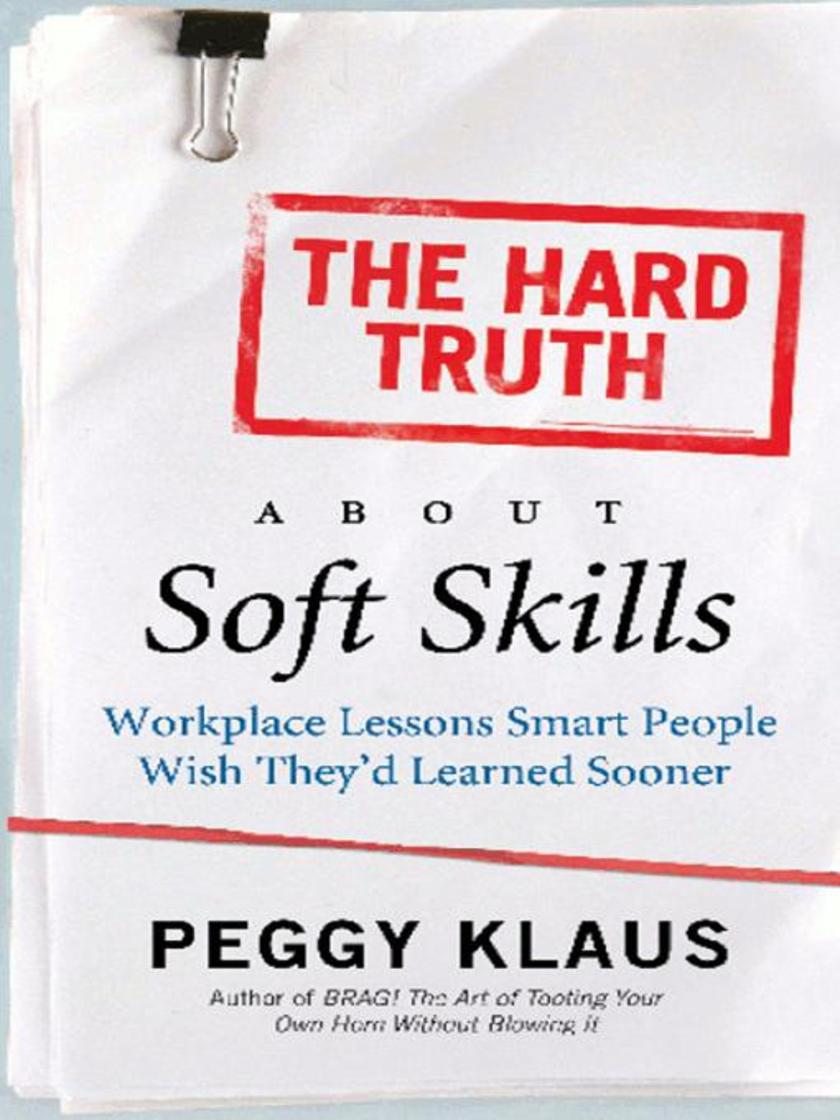
The Hard Truth About Soft Skills
¥95.39
What's the hard truthSoft skills get little respect but will make or break your career. Master your soft skills and really get ahead at work! Fortune 500 coach Peggy Klaus encounters individuals every day who excel at their jobs but aren't getting where they want to go. It's rarely a shortfall in technical expertise that limits their careers, but rather a shortcoming in their social, communication, and self-management behaviors. In The Hard Truth About Soft Skills Klaus delivers practical tools and techniques for mastering soft skills across the career spectrum. She shows how to: manage your workload handle the critics develop and promote your personal brand navigate office politics lead the troops and much more! Klaus reveals why soft skills are often ignored, while bringing their importance to life in her trademark style straightforward, humorous, and motivating. Perfect for readers at all professional stages from those who are just starting out to seasoned executives this book is essential reading for anyone who wants to take his or her career to the next level.
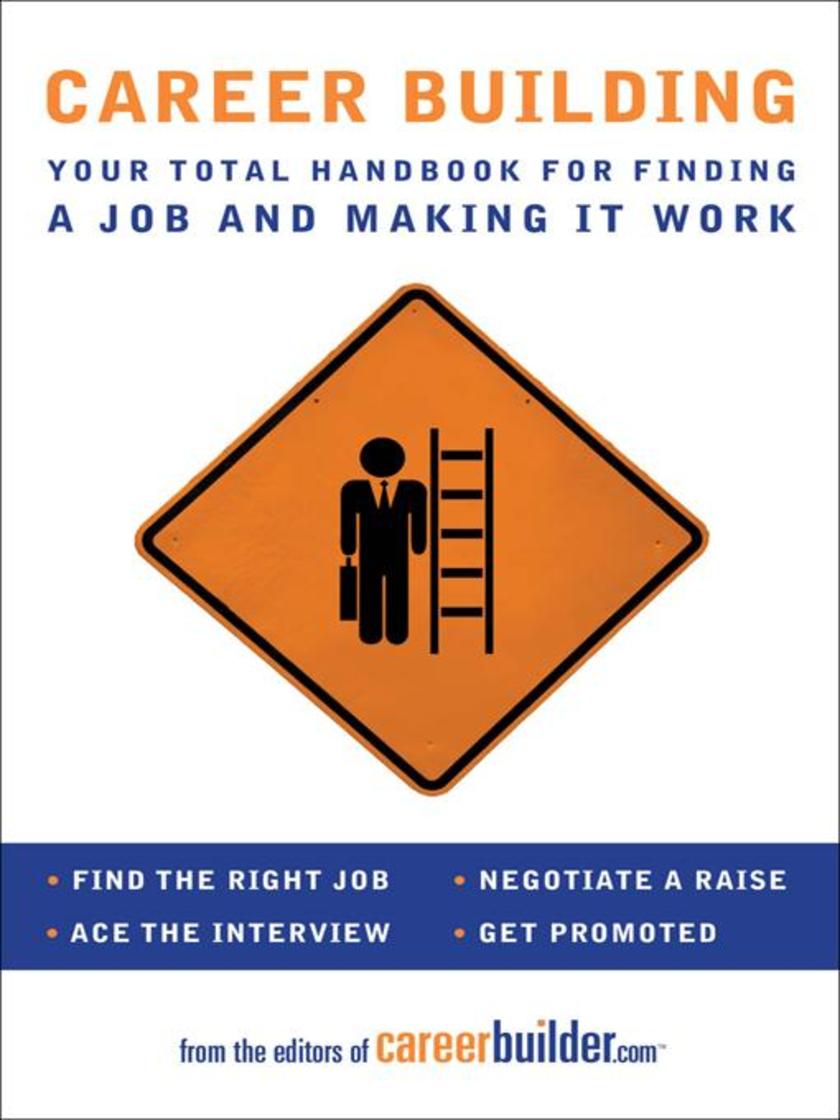
Career Building
¥95.39
Your one-stop guide to finding a job, navigating the corporate ladder, and leaving when the time is rightDid you know that: 60% of hiring managers will offer a higher salary if asked14% of workers have used happy hour to get ahead66% of businesses monitor Internet use77% of workers feel burnout on the jobFrom the experts at CareerBuilder.com, America's largest online job site, comes a complete handbook for career domination. Whether it's answering the questions the interviewers are really asking, making the most of your performance reviews, or quitting with great references and without burning bridges, Career Building explains it all. This book offers everything from job hunting basics to hiring manager secrets, office survival advice to career change suggestions, workplace statistics to sample resignation letters, and more. Whether you're looking for your first job or your fortieth, or you're just eager to move up the ranks at your current company, this is the one and only guide you need to create the career you've always wanted.
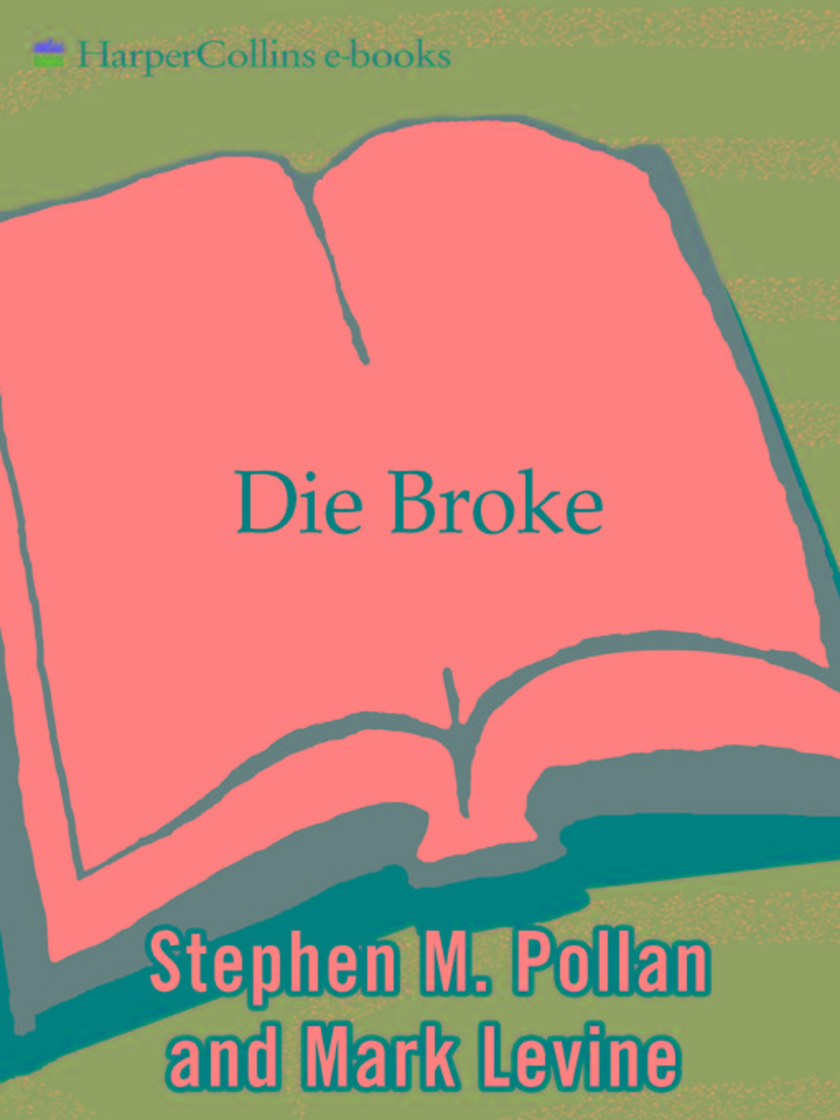
Die Broke
¥95.39
From America's most trusted financial advisor comes a comprehensive guide to a new and utterly sane financial choice. In Die Broke, you'll learn that life is a game where the loser gives his money to Uncle Sam at the end. There are four steps to the process: Quit Today No, don't tell your boss to shove it...at least not out loud. But in your head accept that from this day on you're a free agent whose number one workplace priority is your personal bottom line.Pay Cash You should be as conscious of spending as you are of saving. Credit should be a rarely used tool for those few times (buying homes and cars) when paying cash is impossible.Don't Retire Your work life should be a journey up and down hills, rather than a climb up a sheer cliff that ends with a jump into the abyss.Die Broke It sounds terrifying, the one intolerable outcome to your financial life. And yet, in truth, dying broke might be your best option for a life without fear: fear of failure and privation now, fear of impoverishment in the long run.
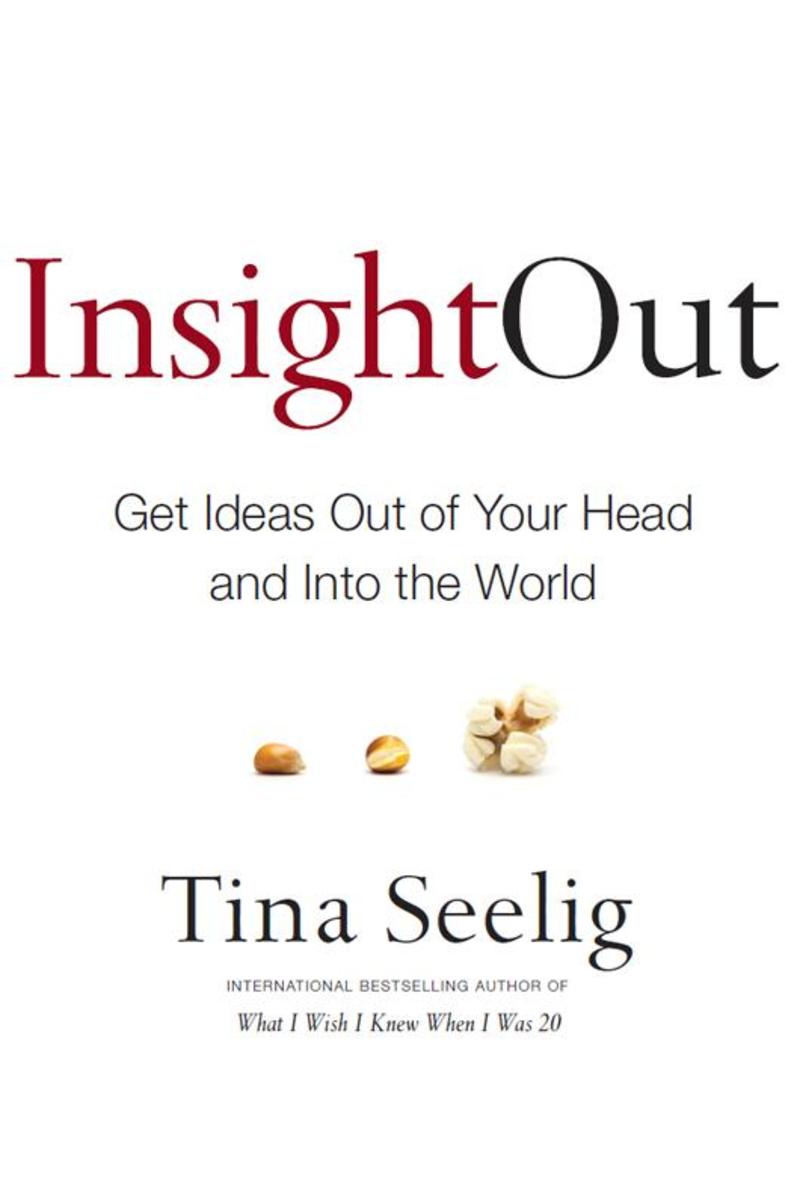
Insight Out
¥95.11
What if there were a clear set of instructions to help you bring your best ideas to lifeAs with a recipe, you could take a compelling idea and with concrete steps, transform it into something extraordinary. As a professor at Stanford University, Tina Seelig has dedicated her career to teaching the practice of moving from imagination to implementation. In Insight Out, she welcomes you into her classroom and crisply defines the core concepts of imagination, creativity, innovation, and entrepreneurship, presenting an elegant and much-needed model she calls the "Invention Cycle." This new approach enables you to see obstacles as opportunities, inspire others to share your vision, and ultimately bring more ideas to fruition. Filled with surprising research, examples from her Stanford classroom, and stories from around the world—Silicon Valley to San Quentin State Prison, rural Pakistan to the North Pole—Insight Out offers essential and unexpected strategies that will help bring even the slightest flicker of an idea to life. Equally useful for students, educators, entrepreneurs, and would-be innovators in all fields, this is an essential road map for anyone who wants to get ideas out of their head and into the world.




 购物车
购物车 个人中心
个人中心



